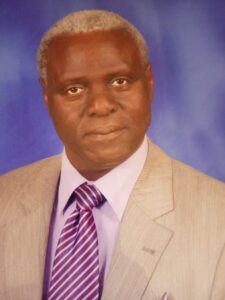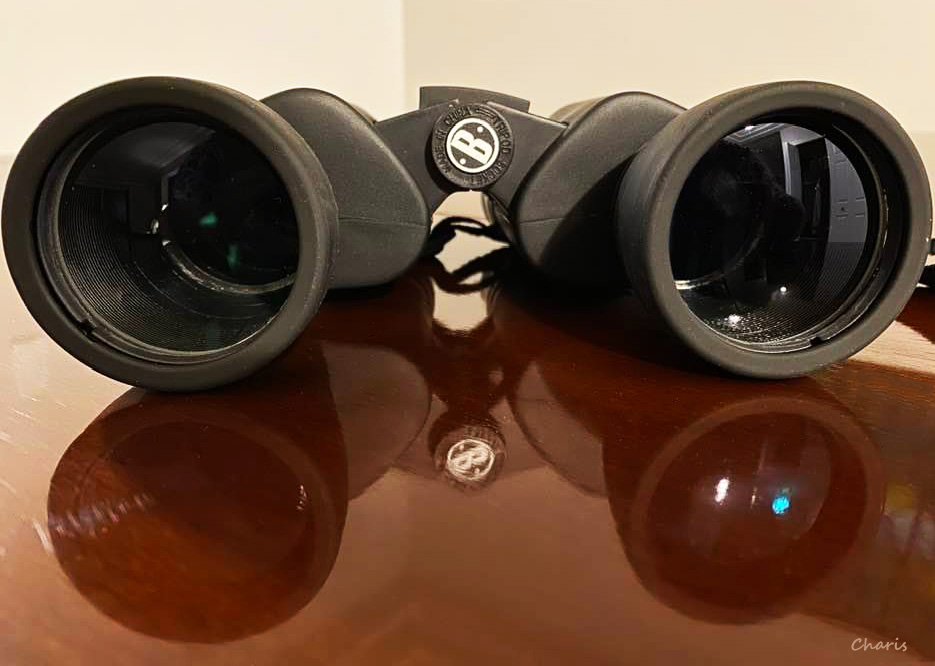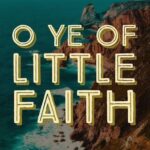“But you, brothers and sisters, are not in darkness so that this Day should surprise you like a thief. You are all children of the light and children of the day. We do not belong to the night or to the darkness. So then, let us not be like others, who are asleep, but let us be awake and sober”. 1 Thessalonians 5:4-6
Here in this passage of Scripture is laid out the basis for Paul’s exhortations. He tells the Thessalonian believers.
“But you, brethren, are not in darkness, so that this Day should overtake you as a thief. You are all sons of light and sons of the day”. We are not of the night nor of darkness. We should know that he talks of their not being in darkness in addressing their behaviour, and so he tells them to be simply told who they are. God has made us sons of the light and sons of the day. The time when we were of the night or of the darkness is in the past. So now we simply have to live up to what God has made us.
We should know that in the Semitic languages generally to be a ‘son’ of something means to be characterized by that thing. Paul tells them that as sons of the day, this Day should not overtake them as a thief who comes in the night. By this, he means that this should not happen for the believer who lives according to their nature as a son of light and son of the day. They will be ready for the return of Jesus Christ. Thus, Paul is led from a consideration of the day of the Lord to the thought that the Thessalonians have nothing to fear from the coming of that Day. This leads to the further thought that their lives should be in harmony with all that that day stands for.
In some respect, the coming of Jesus will be a surprise for everybody, because no one knows the day or the hour (Matthew 24:36). But for Christians who know the times and the seasons, it will not be a complete surprise. No one knows the exact hour a thief will come, but some live in a general preparation against thieves. Those who are not in darkness, who live as they are all sons of light and sons of the day, such people are ready for the return of Jesus. However, if we are in darkness, perhaps caught up in some of the sin Paul warned against previously in this epistle, then we are not ready and need to make ourselves ready for the return of Jesus.
Paul’s exhortations are for the Thessalonian believers to be awake, sober, and watchful. That is why he says: “therefore let us not sleep, as others do, but let us watch and be sober”. Beloved, he admonishes them that “those who sleep, sleep at night, and those who get drunk are drunk at night. But let us who are of the day be sober, putting on the breastplate of faith and love, and as a helmet the hope of salvation”. There lies the essence of the statement: “Therefore let us not sleep”. In other words, because we do not belong to the night nor of darkness (1 Thessalonians 5:5), our spiritual condition should never be marked by sleep. Spiritually speaking, we need to be active and aware, to watch and be sober.
We should note that in speaking of not sleeping, Paul used a different word here than for the sleep of death mentioned in 1 Thessalonians 4:13. “The word sleep is here used metaphorically to denote indifference to spiritual realities on the part of believers. It is a different word than that in 1 Thessalonians 4:13-15 for the sleep of death. It covers all sorts of moral and spiritual laxity or insensibility.
Verse 4 says: “But you, brothers and sisters, are not in darkness so that this day should surprise you like a thief”. This verse signifies that Christians stand in stark contrast to those without Christ, the “they” of verse 3. As such, the coming Day of the Lord will not surprise them since they are not in darkness,
We should note that Paul previously told the Thessalonians about the coming Day of the Lord so that they were not in the dark about that day. We should know that God takes Christians into His confidence about future things. In view of this, non-Christians live in deluded darkness about that Day. But Christians will not participate at the beginning of Tribulation.
That Day shall not overtake them as a thief.
The word “overtake” properly signifies to lay hold of, then, to lay hold of so as to possess as one’s own, to appropriate, apprehend or overtake. Jesus will have already Raptured the church by the Day of the Lord as stated in 1 Thessalonians 4:13-18. That is why this Day will not overtake them. We should remember what the Lord Jesus says to the apostle John on the island of Patmos directed at one of the seven churches in Asia Minor: “Because you have kept My command to persevere, I also will keep you from the hour of trial [the seven-year Tribulation] which shall come upon the whole world, to test those who dwell on the earth” (Revelation 3:10).
The principle here is that God discriminates between what He does with believers and non-believers.
God always makes a distinction between His people and the non-Christian. We cannot emphasize this distinction too strongly. God will translate the Christian to heaven at the Rapture. God will leave non-Christians on earth to go into a period of Great Tribulation orchestrated by the Anti-Christ. The children of the Light know about this coming dark day. They are in the light about God’s purpose. However, the Day of the Lord is when the Lord returns to earth in great glory to judge the world. He will make things right on that day. First, He will bring great judgment on the earth during the Great Tribulation after the Rapture of the Church. Then, this will be followed with His Second Coming. He will come back with the saints to establish His Kingdom on earth for 1,000 years, and that is why it is referred to as the Millennial Kingdom. Clearly then, the Day of the Lord includes both the Great Tribulation and the Millennial Kingdom of Christ. As such, Paul is describing the Rapture and its aftermath to the Christians at Thessalonica.
We should note that earlier, in the event known as the Rapture, the referred to the moment when Christ will remove all believers from the earth (1 Thessalonians 4:15-17). Following that will come the day of the Lord, which in this case is a reference to the Great Tribulation that will be a period of God’s wrath and judgment on the earth.
For unbelievers, the Day of the Lord is a time of darkness. The prophet Joel warned about the coming of this era. He wrote: “Consecrate a fast; call a solemn assembly. Gather the elders and all the inhabitants of the land to the house of the Lord your God, and cry out to the Lord. Alas for the day! For the Day of the Lord is near, and as destruction from the Almighty it comes” (Joel 1:14-15). Again, in Joel 2:1-2 we read: “Blow a trumpet in Zion; sound an alarm on my holy mountain! Let all the inhabitants of the land tremble, for the Day of the Lord is coming; it is near, a Day of darkness and gloom, a Day of clouds and thick darkness!”
Fortunately for believers, the Great Tribulation will not take them by surprise like the arrival of a thief, because believers do not belong to the darkness. 1 Peter 2:9 informs us that God has called believers out of darkness. As such, symbolically, in this passage, those who belong to the light are Christians who are those that have put their faith in Jesus.
Verse 5 says: “You are all children of the light and children of the day. We do not belong to the night or to the darkness”. In this verse they are told that “you are all the children of light, you are children of God, and enjoy both His light and life”. If you are Christians, you belong to Him who has brought life and immortality to light by His Gospel. Beloved, this dispensation, under which you are, has illustrated all the preceding dispensations. In its light, all has become luminous, and you, who walked formerly in heathen ignorance, or in the darkness of Jewish prejudices, you are now light in the Lord, because you have believed in Him who is the light to lighten the Gentiles, and the glory and splendour of His people of Israel.
As believers in the Lord Jesus Christ, we are not of the night, nor of darkness. Our actions are such that we are not afraid to expose ourselves to the fullest and clearest light. We should know that sinners hate the light and they are enemies to knowledge. They love darkness and they will not receive instructions. As such, their deeds cannot bear the light. However, Paul longs to be with the Lord, knowing that the suffering and pain of this present age will one day give way to the unimaginable glory of being with Christ forever. And having detailed the return of the Lord in the air for His Church “with a loud shout, the voice of the archangel, and the trumpet-call of God”, when we shall all be changed in the twinkling of an eye, Paul then outlines how we should behave as we wait for Christ’s glorious and imminent appearing.
We should not slumber and sleep or be lulled into some soporific stupor or some narcotic dream into which many in this unbelieving world system have been sucked. We who have the light of the glorious gospel of Christ in our hearts and the hope of the precious promise of heaven in our sights, should never be careless or apathetic as we wait for our blessed hope, that wonderful Day when the glory of our great God and Saviour, Jesus Christ, will be revealed.
Neither should we be like those lukewarm believers, carnal Christians, and legalistic religionists that have distorted the Word of God to fit into a seeker-friendly, social gospel, nor don the anti-Israel diatribe that has erroneously replaced God’s nation of Israel with the Church.
Verse 6 says: “So then, let us not be like others, who are asleep, but let us be awake and sober”.
Paul now turns to the practical implications of the Day of the Lord.
He uses the words, “so then” or in versions of this Scripture “therefore”. He now brings us to the punch line for prophecy. The words “so then” or “therefore” draw an emphatic, inescapable conclusion to the doctrine of the teaching on the coming Day of the Lord. Paul draws the upshot of this truth to our personal lives. It is out of character for the believer to live in the night (1 Thessalonians 5:5) because darkness is foreign to his character.
Observably, Paul now gives a number of directives to the believers in Thessalonica that the Holy Spirit intends for us today. He tells them not to sleep, the first exhortation of how a believer should carry himself or herself, is to stay awake spiritually. “Sleep” here refers to carnal indifference to spiritual things by believers (Ephesians 5:14 and 1 Thessalonians 5:6). This is a condition of insensibility to God’s values. We should act as others do. The “others” are those who do not know the Lord ( 1 Thessalonians 4:13). They do not have a single ray of light from the Lord to beckon them on. They live their lives in hopeless despair and indulgence. They live as if Christ will never return and that they will never experience the awful day of wrath. Like the foolish virgins of Jesus’ parable, they sleep in spiritual unpreparedness (Matthew 25:5). They are indifferent due to stupor and sloth of sin. Beloved, the principle here is our need to stay alert to prophecy because this enables Christians to stay spiritually alert.
Carnal Christians are usually dull to prophetic things. They show little interest in things to come. However, the Bible has much to say about the correlation between prophecy and godly living. We cannot help but be sensitive to God’s values when we anticipate what God will do in the future.
The coming Day-of-the-Lord is a future period of time when God will intervene in the history of mankind once again. This prophesied ‘Day’ is not a 24-hour long period, but a specific season in the history of the world. As Christians, we are exhorted to be alert and sober as we see this ‘Day’ approaching. We should not to allow this ‘Day’ to creep up on us unawares, or sleep as others do. We should not be indifferent or lukewarm but should walk in spirit and truth, and live circumspectly.
We should realize that many passages in both the Old and New Testaments explain this ‘Day’ as follows:
1) The 7 year Tribulation period ( referred to as Great Tribulation), as outlined by the prophet Daniel.
2) The period which Jeremiah calls ‘the Time of Jacob’s Trouble’ which occurs during the last 3 1/2 years of the 7 year period of the Great Tribulation.
3) The prophesied return of Christ to earth with His saints to set up His earthly Millennial Kingdom at the end of the 7 year Tribulation period.
4) The 1000-year Millennial Kingdom when Jesus reigns as King of kings and Lord of lords here on earth.
5) The destruction of heaven and earth at the end of the Millennium – before the creation of a new heaven and a new earth bringing forth the Eternal State of New Jerusalem.
The apostle Paul has been discussing the Rapture: a future, abrupt moment when Christ will retrieve believers from the earth (1 Thessalonians 4:16-17). This moment is one the Thessalonians are prepared for, so they woould not be caught off guard the way unbelievers will (1 Thessalonians 5:2-3). Paul emphasized this point in the prior verse by referring to these Christians as “children of light, children of the day”.
Because these Thessalonian believers had come to know the Light of the world and the truth of the gospel, Paul calls on them to stay alert and self-disciplined. He urges them not to “sleep”, appealing to them not to be apathetic or uncaring. Believers need to be alert and self-disciplined as they watch for the Lord’s return to take them to heaven. We should also note that Paul issues a similar appeal to the Christians at Ephesus. In Ephesians 5:15-16 he writes: “Look carefully then how you walk, not as unwise but as wise, making the best use of the time, because the days are evil”. If believers fail to be alert to the times and the hopeless condition of the children of darkness, how will they win the lost to Christ? In Ephesians 6:18 he admonishes believers to “keep alert with all perseverance”.
The apostle Peter also appeals for sobriety, meaning self-discipline, and watchfulness. Similarly, Peter writes: “Be sober-minded; be watchful. Your adversary the devil prowls around like a roaring lion, seeking someone to devour” (1 Peter 5:8). Beloved, a drunken person has neither a clear mind nor any control over motor activities. When are Christians most likely to lose control? When we are spiritually out of shape. We should realize that sober people have balance in disposition, thought, and action. They are not flighty or carried away by their or others’ notions. They are mentally self-controlled. These believers understand the situations they will face in life. Therefore, the principle here is that:
Christians should have poise and self-control in any situation they face.

Senior Pastor,
Divine Grace Ecclesia,
King’eero, Lower Kabete.







